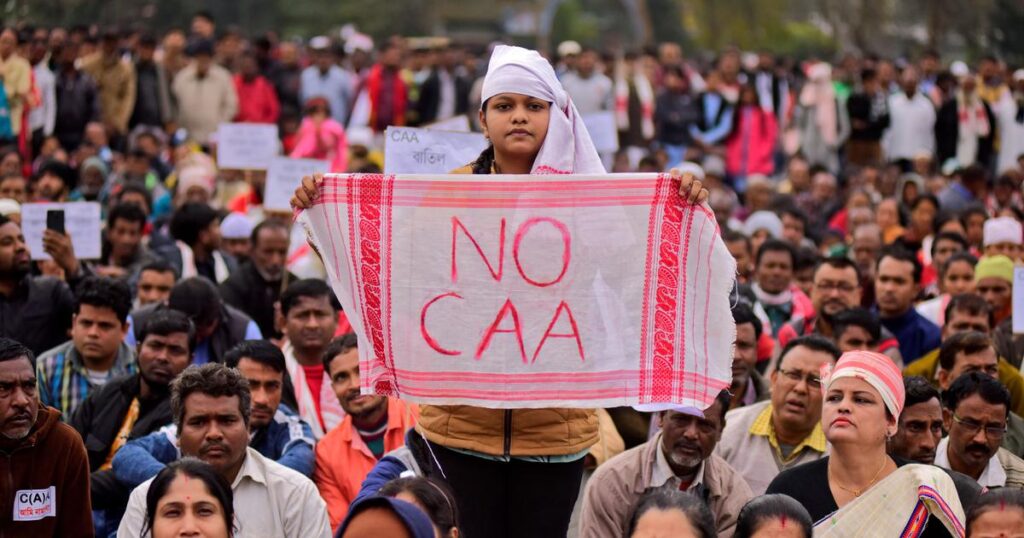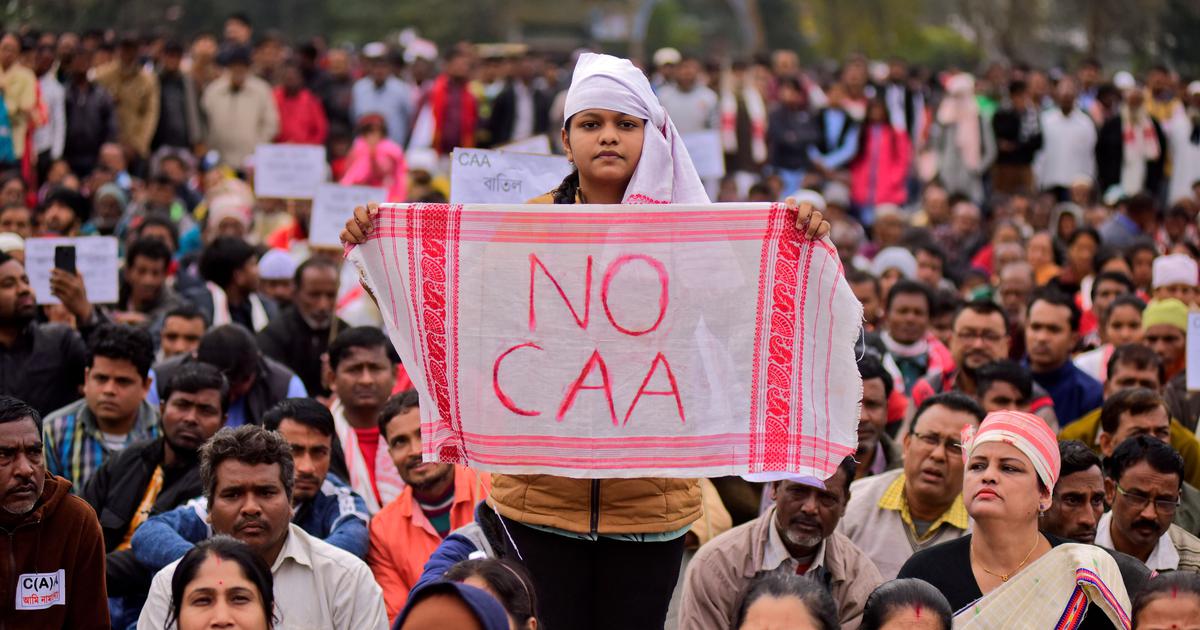Today we want to tell you that after a long wait, CAA has been launched in India. India is a diverse and rich country, which is known for its diversity and equality. At the same time, as an ultimate symbol of diversity and equality, recently an important scheme related to India, called CAA, has been started. Through this, the government has clarified its role and given a strong signal for equality to different sections.
CAA Has Been Launched in India

CAA, i.e. “Constitutional Citizenship Amendment Act”, has been made on the basis of the Indian Constitution. Its main objective is to provide Indian citizenship to religious and claim based refugees. It was passed in Parliament on Thursday, 26 December 2019.
The CAA aims to provide Indian citizenship to religious and claim-based refugees who have come from Bangladesh, Pakistan and Afghanistan and have become victims of religious or caste violence in these countries. This is an effort of compassion and empathy towards those who are not safe in their own country and are seeking refuge on this holy land of India.
For this, the government has prepared a constitutional process through which refugees will be granted Indian citizenship. Along with this, it has also reduced the difficulty of proving interviews, citizenship certificate and other supports.
There are also various discussions and controversies regarding CAA. Some people consider it divisive on religious grounds, while others see it as a violation of human rights. However, the government has clearly clarified that the main objective of CAA is to support the people of Hindu, Sikh, Buddhist, Jain, Parsi and Christian religions who are facing troubles in their countries.
The introduction of CAA is an important step for India. It reaffirms the constitutional and humanitarian values of the country and provides the right to a safe and dignified life to those who are being oppressed in their own country.
Through this constitutional step, India has shown its goodwill and the values of the court. It is a message that India sympathizes and supports those who are feeling unsafe in their own country and are choosing India as their new home.
Why are Muslims not included in the CAA list?
After the launch of CAA, a big controversy has arisen as to why Muslims have not been included in it. Various assumptions and ideas regarding the answer to this question are making the issue deeper.
Firstly, many believe that the CAA leaves out Muslims because it only supports people of those religions who are facing religious persecution in Pakistan, Bangladesh and Afghanistan. Furthermore, Muslims do not have to be victims of religious persecution in India, so they do not need to be granted citizenship under the CAA.
On the other hand, some people believe that the CAA leaves out Muslims as its main aim is to support people of Hindu, Sikh, Buddhist, Jain, Parsi and Christian religions who are facing religious persecution in their countries. India has promised to provide them asylum in its country.
According to the provisions of the Constitution, every citizen should have equal rights, no matter what religion, caste, or religious community he belongs to. In this perspective, some people believe that the CAA violates the values of the Constitution by excluding Muslims, as it denies them the right to Indian citizenship.
Also, from another perspective, some thinkers also believe that the CAA should aim to support only the victims of religious persecution, which could also include other minority communities in Muslim countries.
Despite all these views, through CAA the government has made an effort to support those who are victims of religious and caste violence in their country. Despite this, the non-inclusion of the Muslim community in this list is generating further controversy and discussion on this issue.
In conclusion, CAA is an important step in reaffirming India’s constitutional and humanitarian values. This makes it clear that India is committed to an open-minded and civilized society, which welcomes people of all religions and castes into its lap. It gives the message of a new hope, which is moving towards peace, harmony and harmony.
To Know about Sanatan Religion in English Click Here
To Know about Sanatan Religion in Hindi Click Here
